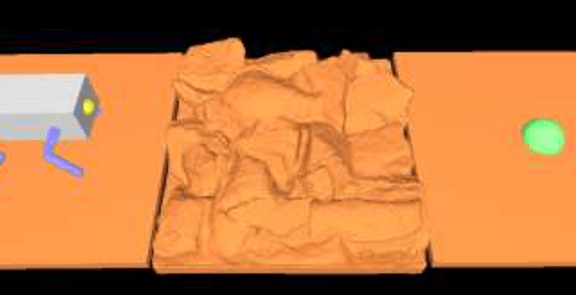A Complete Control Architecture for Quadruped Locomotion Over Rough Terrain

Legged robots have the potential to navigate a much larger variety of terrain than their wheeled counterparts. In this paper we present a hierarchical control architecture that enables a quadruped, the “LittleDog” robot, to walk over rough terrain. The controller consists of a high-level planner that plans a set of footsteps across the terrain, a low-level planner that plans trajectories for the robot’s feet and center of gravity (COG), and a low-level controller that tracks these desired trajectories using a set of closed-loop mechanisms. We conduct extensive experiments to verify that the controller is able to robustly cross a wide variety of challenging terrains, climbing over obstacles nearly as tall as the robot’s legs. In addition, we highlight several elements of the controller that we found to be particularly crucial for robust locomotion, and which are applicable to quadruped robots in general. In such cases we conduct empirical evaluations to test the usefulness of these elements.